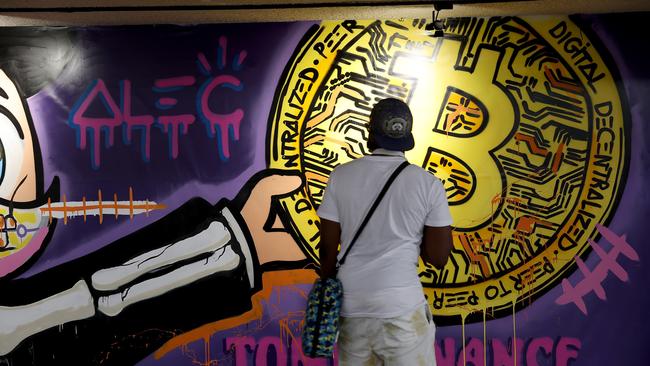Taxing the metaverse – the ATO runs into a new reality
Tax office systems kept pace with early moves in crypto, but in the wider Metaverse a blunt approach is already causing trouble.

The tax office moved fast to tax cryptocurrency.
Now it is hell bent on making sure it gets every cent out of the wider Metaverse – but there is one small problem. It’s operating on a tax regime designed in 1985.
With more than half a million Australians now engaged in cryptocurrency and digital assets, the Australian Taxation Office is once more signalling its intentions to tax anything that moves.
Crypto-enthusiasts, collectors of non-fungible tokens even digi-pioneers in the booming market for digital real estate are being warned that the ATO’s data matching armoury will leave no stone unturned.
As Mark Chapman at H&R Block Australia puts it: “They are trying to shoehorn a whole new scene into an existing model. We would like a lot more clarification from the ATO on how they deal – or will deal – with how this area is evolving.”
No wonder the experts are frustrated.
Our 37-year old Capital Gains Tax regime is ageing fast. Even the specific 2019 tax rulings in relation to crypto are rapidly going out of date.
Ross Higgins of Mills Oakley Private Advisory points to the example of collectables (which are given special treatment for tax purposes). The ATO lists what seems like an exhaustive menu of items, from paintings and sculptures to drawings, engravings, photographs and even rare book portfolios. Bored Apes and digitised Gucci handbags which have hit the headlines this year are nowhere to be seen.
Investors see the metaverse as a sort of parallel digital economy where a variety of internet technologies using crypto for payment are coming together.
But the lack of any significant update from the ATO spells trouble.
Every other day this immersive alternative economy draws in new money and personnel.
Just this week the former chief executive of Disney, Rob Iger, announced he was joining a metaverse start-up Genies Ltd. In Australia luxury fashion brand Myami presented what it called a world first metaverse fashion show.
Who might have guessed even a year ago that major Australian financial service groups such as Commonwealth Bank would offer crypto service or leading fund managers such as Vimal Gor – the ex-head of bonds at Pendal Group – would risk his career to jump to Trovio, a crypto adviser and specialist in digital assets.
As Higgins at Mills Oakley Advisory suggests: ‘‘For most investors most of the time we are talking about capital gains tax – there are assets purchased with a view to selling them much later at a profit. But more recently we are seeing more grey areas more private rulings and more contested themes.”
For the moment, here’s they key guidance from the ATO.
If you bought crypto currency as a long term bet then it will be taxed for capital gains in the same manner as shares or property. In other words when you sell, the profit you have gained will be taxed at 50 per cent if the sale is inside 12 months or 25 per cent if it has been held for more than 12 months.
There are exceptions to this rule. The biggest single exception is personal use where there is an exclusion for amounts under $10,000. If you buy crypto to use as opposed to buying it for long-term profit this exemption kicks in.
ATO acting assistant commissioner Sylvia Gallagher warned earlier this month that the tax office would chase the 60 per cent surge in crypto trading activity seen last year: “We have a lot of information and we do use this data to ensure that people are meeting their tax obligations,” she said at the time.
Gallagher was referring to the substantial ATO data matching program which will “identify individuals or businesses (who) have or may be engaged in buying, selling or transferring cryptocurrency”,
But as one adviser after another points, out taxing the metaverse fairly is now exceedingly difficult without new clarification. What is personal use exactly? What if you purchased crypto for a game but never got to play it?
The more the metaverse reveals itself the more tax problems loom. Why is digital art not a collectable? Under current tax rules collectables purchased for less than $500 are not subject to CGT. Surely if there is one area of art where the chances of “art” rocketing higher than anyone thought possible it is here?
Until the government gets around to examining the area fully, the ATO has to take it on a case-by-case basis – most contested cases hinge on the notion of objective behaviour. In other words, did you do with the asset what you say? Or does your data matched behaviour suggest otherwise? It all worked very well in 1985. In 2022 it’s a very different picture.



